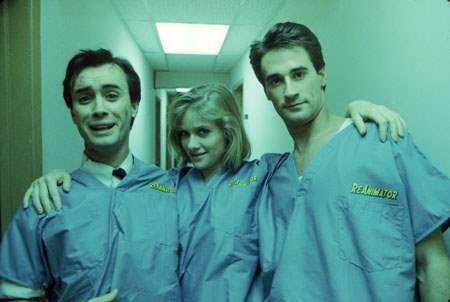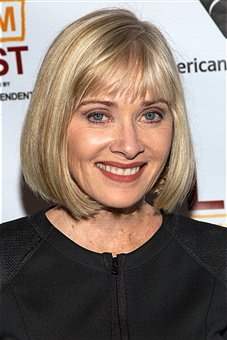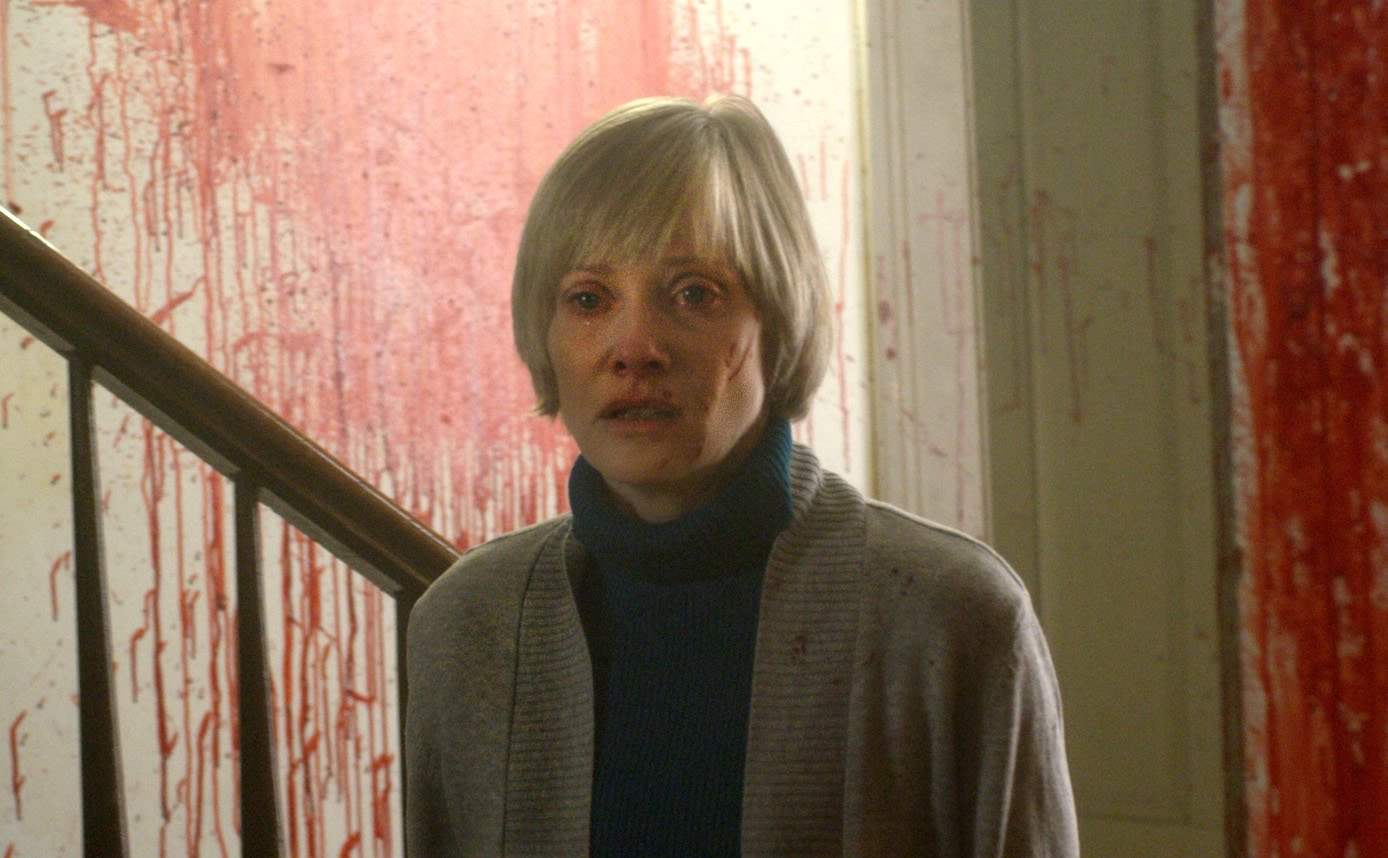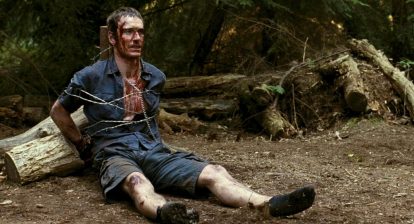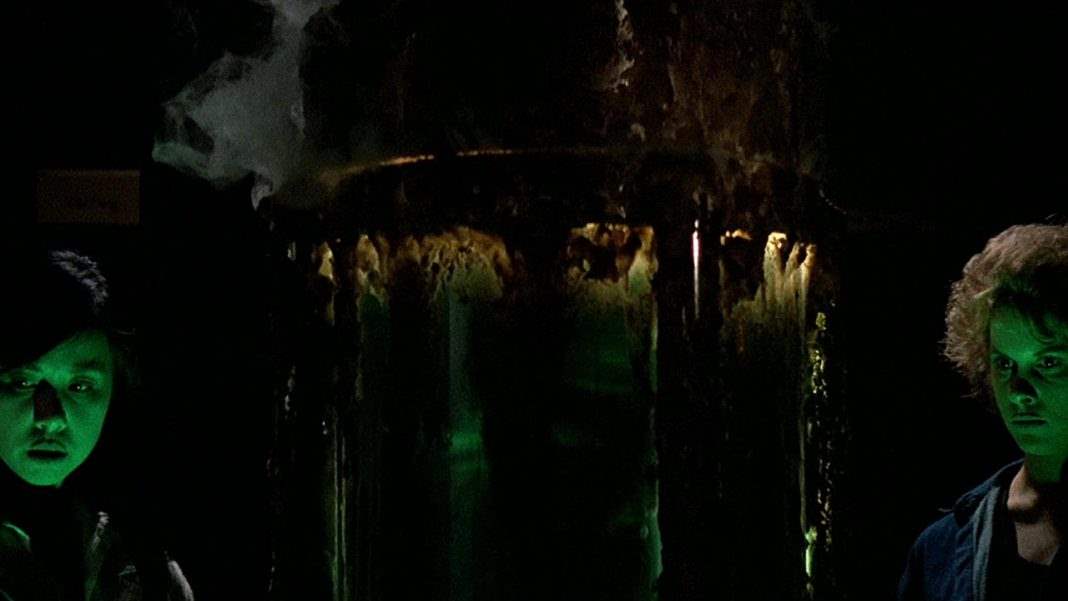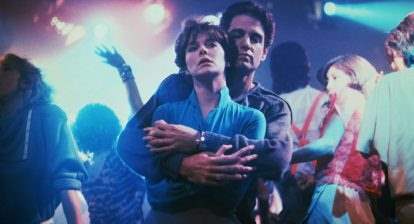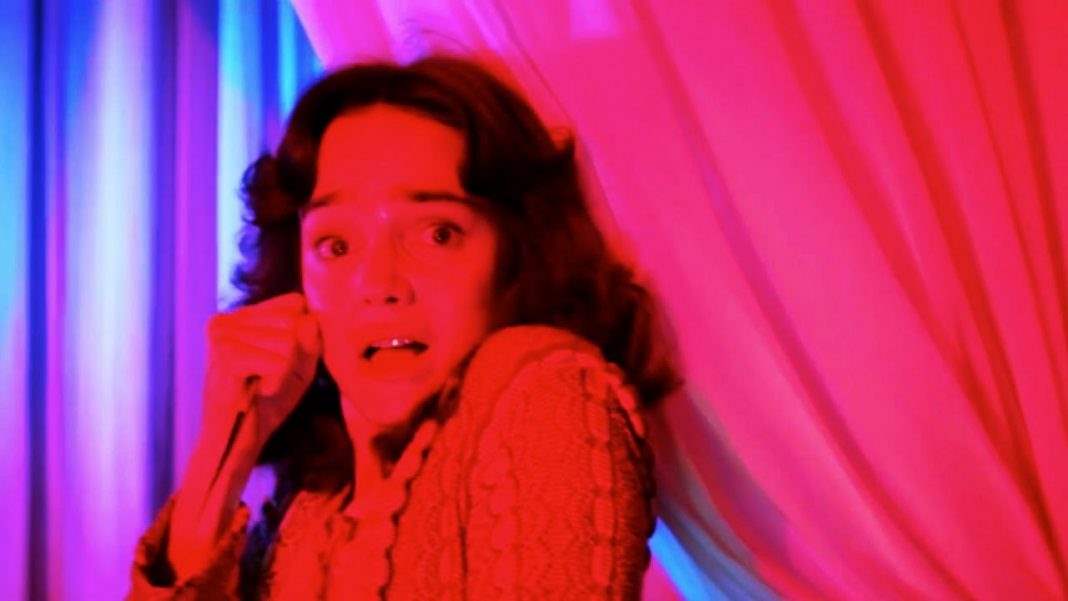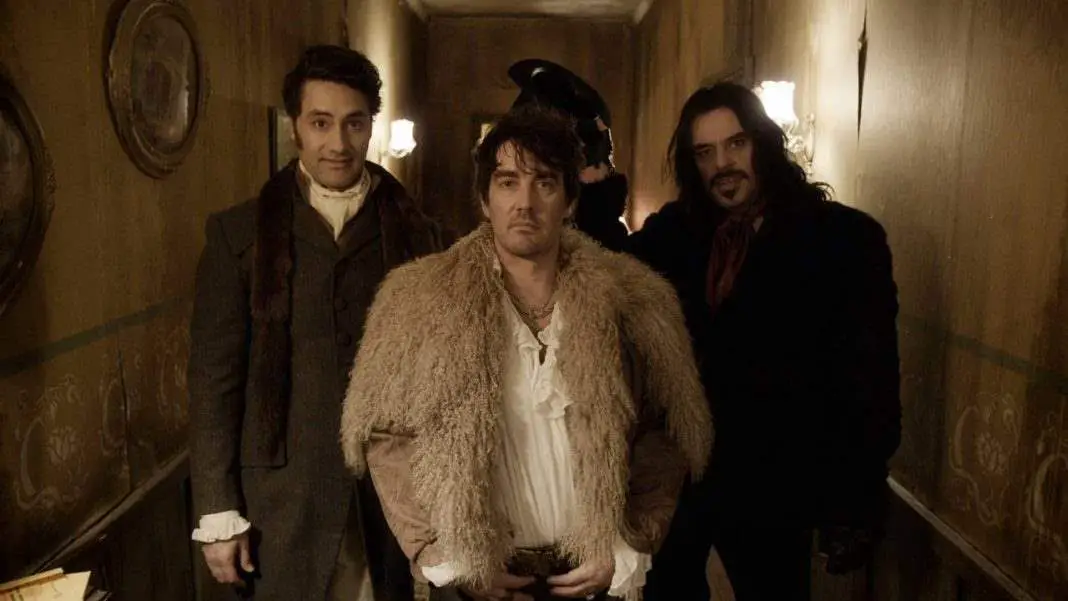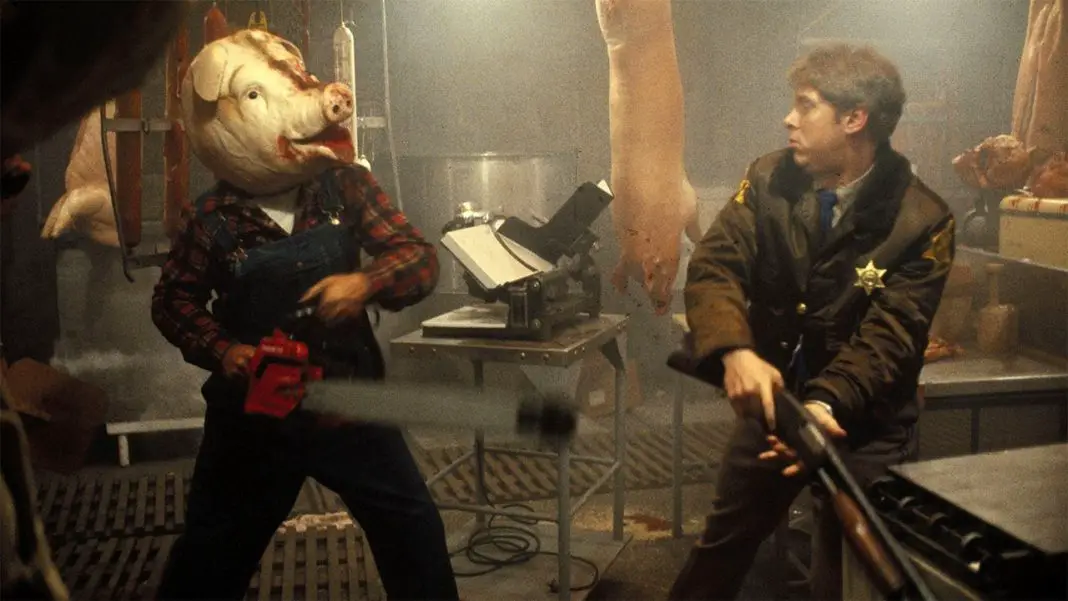Barbara Crampton is one of the most prominent actresses in the horror genre, and has been for thirty years. In campy, innovative cult classics like Re-Animator, From Beyond and Castle Freak, she managed to rise above playing the traditional victim, instead bringing to life characters that were textured, in some cases damaged, but always felt real even if the movie didn’t. Now, Crampton stars in We Are Still Here, a movie about a couple who lost their son moving into a new home where a supernatural presence still lingers.
Also starring Larry Fessenden and Lisa Marie, We Are Still Here hits theaters and VOD on June 5th.
Wicked Horror: What was it about the role of Anne in particular that first captured your interest?
Barbara Crampton: Well, she’s this woman who lost her son in a car accident, and I have two young children and a stepson and I love them tremendously. To be able to play a part with that depth of feeling about someone that’s no longer with you is, in a weird, strange way, exciting to play. To have that feeling and be able to display it on the screen. I interviewed two different women who both lost children in car accidents, and their level of sadness and desperation was endless. Just endless. Even now. One of them was about ten years, one was about twenty years ago that they had lost their children. One of them actually lost her only son. In speaking with her and having a sheet of paper with all her answers on it about how she felt. And I asked her very specific questions about how it affected her relationship with her husband and other family members. What was it like to have to go on, on a day to day basis and how did you overcome that over time? It was really interesting and it gave me very detailed things to work with.
What was it about the film as a whole that really made you want to be a part of it?I think it was first of all working with Ted Geoghan, I had met him when we did You’re Next, he handled a lot of the publicity for the movie. And we became quite good friends over it. He and I would speak over the phone occasionally and he sent me the script more than a year before we actually started filming, just to get my take on it. He is a horror lover and just has such a wide range of knowledge about the genre. And this was his first directing gig, so I was excited to be a part of that. When I knew that Travis Stevens was going to be producing… I hadn’t met Travis, but his reputation in the genre is spectacular, and I thought “Wow.” They have Ted, they have Travis, and I knew that Larry was going to be a part of it from the very beginning because Ted, after some time, had told me that he had written the part of Anne for me and wrote the part that Larry plays for him. I’d been a fan of Larry’s work forever. Just the whole team coming together, I was really excited to work on it. I love horror movies. That’s where I started and it’s where I keep finding myself. And there were some elements to it that were obviously from the late ‘70’s, early ‘80’s and that was my era. Everything seemed to be in my favor for a wonderful experience. And it was great for me, at my age, to get a leading role in a film. To start from the beginning and I’m still around at the end. It was quite a nice thing for me to still be able to have. I was very excited to work on the movie with them.
How much prep time did you have for the role? Was it more, given that you already knew the role was yours before production?
Initially, when Ted sent me the script, he really just wanted me to read it. Just for my feedback. Really, at first, he did not tell me that he wrote the role for me. He just wanted my feedback on the script. So I told him what I thought about it, mostly I thought it was fantastic. He changed it a little bit from his first couple of drafts, but not drastically. And then it was really only subsequently after that when he was trying to put the project together that he revealed to me that I was who he really wanted to play Anne. And he did ask me “Would you like the other role or would you like to play Anne?” And, “I think Anne is more you.” I thought, “Oh, great! Wow!” I had a definite feeling for Anne, being a mom myself. Just what she goes through in the beginning, and in the end, I have a very strong connection to her. Initially he didn’t even know that he was going to direct the movie, because mostly he’s a writer. He’s produced some, but usually he has somebody else direct. But he just felt such a connection to it himself, that he finally goes, “Why don’t I direct it? I can do it.” So I think we had a unique team and with everybody who worked on the movie, from the actors to Travis, to Ted and with everybody around us, we all worked together very well. I hope it was a good experience for Ted directing the movie. I think it was. I think he was happy with the final product. I really hope that he will direct more movies, because he has a wealth of knowledge as far as the horror genre is concerned. He really knows a lot about all of the different elements that come together to make a movie. And I think he did an amazing job pulling it all together. Because there’s a lot going on in this movie, there’s a lot of special effects and—at the heart of it—a very deep character story. The house is almost like an additional character.
 What is it about the horror genre that keeps you coming back to it?
What is it about the horror genre that keeps you coming back to it?
Well, I think it chose me, to be honest with you. I didn’t initially think, “Oh, I’m going to have a career in horror movies.” I think because I worked on Re-Animator and From Beyond and with Stuart Gordon so many times, people tended to think of me for those movies. But over time I’ve grown to love the genre. It’s very exciting to work in a horror movie. There’s a lot going on. Very high-pitched emotions, very deep feelings of fear and anxiety and love, these things inform us about how to be in the world. Storytelling in general gives us a roadmap on how to act in life. What do you love? What do you hate? What do you want to work towards? What are your relationships like with people? Storytelling is very important in our culture. To work in a horror movie, with very deep feelings of dread and fear and excitement, and desperation. Also working with elements of trying to get away from a killer or trying to save someone, I mean, working with very strong indications of how to be in the world. It’s really the biggest thing that we’re working with: How to survive in this world. I’ve always felt that, in the characters that I’ve been offered in horror movies also have a very deep inner life. They’re emotional, intelligent characters. And if they’re not intelligent, I try to infuse some intelligence on them. It’s a genre that I’ve come to love and that people have allowed me to continue to work in.
This year obviously marks the 30th anniversary of Re-Animator. That’s one of the few cult classics where it seems like the audience is bigger every year. For thirty years people have kept rediscovering, and rediscovering. What do you think it is about the film that lends it to being constantly rediscovered by new audiences?
I think that it’s a movie that works very well with an outlandish premise. And also with the performance of Jeffrey Combs, and also with the marriage of complete horror and complete comedy. I don’t think too many movies have done a mash-up so well. The Evil Dead and Evil Dead II both did, I think, but there’s a level of storytelling in Re-Animator that is very provocative. And also what Jeffrey brought to the character, he created an iconic mad scientist that I don’t think anybody could ever recreate. And the horrific-ness is matched by the level of fun and comedy in this movie. It’s all done so well. On paper, the movie was very good and really interesting, but sometimes a certain magic happens in a film, but somehow everything came together and it worked really well. Over time, people can’t believe how outlandishly creepy it is, but how funny it is at the same time. It does both so well and I think that’s why it stood the test of time. 